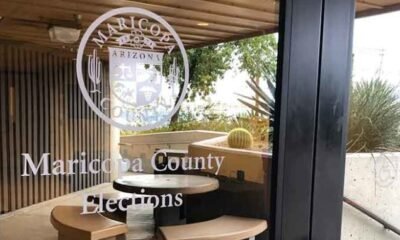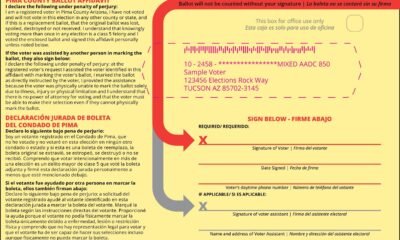Arizona politics
Capitol Braces for 2026 Election Fatigue as Tension Mounts

The 2026 election is drawing early attention in Arizona, but many political consultants argue that voters are still not ready to engage with the ongoing discussions. Despite the apparent urgency of campaign announcements, endorsements, and fundraising efforts flooding social media, the actual Election Day is a substantial 550 days away.
Consultants warn that current election narratives are failing to reach the average voter, who may be less interested in the in-depth political discourse. Chuck Coughlin, CEO of High Ground, emphasized that the prevailing debates revolve mainly within the more engaged voter bases, while a significant portion of the electorate remains disengaged. “What I see right now is just this ping pong match that goes on between MAGA and the left, which everybody in our industry covers and pays attention to,” he stated.
He pointed to the relentless cycle of news and social media as contributing factors to this disconnect. Coughlin noted that only the most active voters are consuming early election information, as evidenced by the stark participation rates in primary elections.
Even Governor Katie Hobbs, who is set to run for reelection, acknowledged her reluctance to focus on the distant election. At a press conference, she remarked, “I’m not focused on an election that is 18 months away.” Nonetheless, her campaign and others continue to ramp up efforts, with many candidates announcing their intentions to run for state positions.
Polling data indicates a lack of enthusiasm among Republican primary voters, with 39% undecided on gubernatorial candidates and 78% unsure about attorney general candidates. This uncertainty underscores the notion that many voters are not yet engaged with the upcoming election cycle.
Consultants suggest that many current events in state and national politics are unlikely to influence the election landscape when it finally arrives. Democratic consultant Stacy Pearson expressed skepticism about issues such as Hobbs’ recent bill moratorium resonating with voters: “I don’t think the average voter gives a flying rat’s behind,” she said, reflecting a common sentiment that voter priorities may lie elsewhere.
Moreover, recent tensions within the Democratic Party, including public criticisms among state leaders, are viewed as non-factors regarding voter perception. Steven Slugocki, another Democratic consultant, stated that practical concerns like job security and rising costs are far more pressing for voters than party disputes.
As the political landscape evolves, Coughlin advises both parties to concentrate on cohesive messaging and voter registration efforts rather than getting mired in early speculations. “Stop thinking about it,” he urged. “Live your life, go to the grocery store, love your kids, love your neighbors, and build your social group around what matters.”


















